International Coffee Day is more than a celebration of taste. It is a reminder that every cup depends on collaboration across continents. From farmers and cooperatives to carriers, traders, and baristas, logistics is the thread that connects them all, ensuring coffee continues to fuel mornings, conversations, and cultures around the globe.
The morning ritual runs on logistics
Every day, more than 2 billion cups of coffee are poured around the world, according to an article published by the BBC.
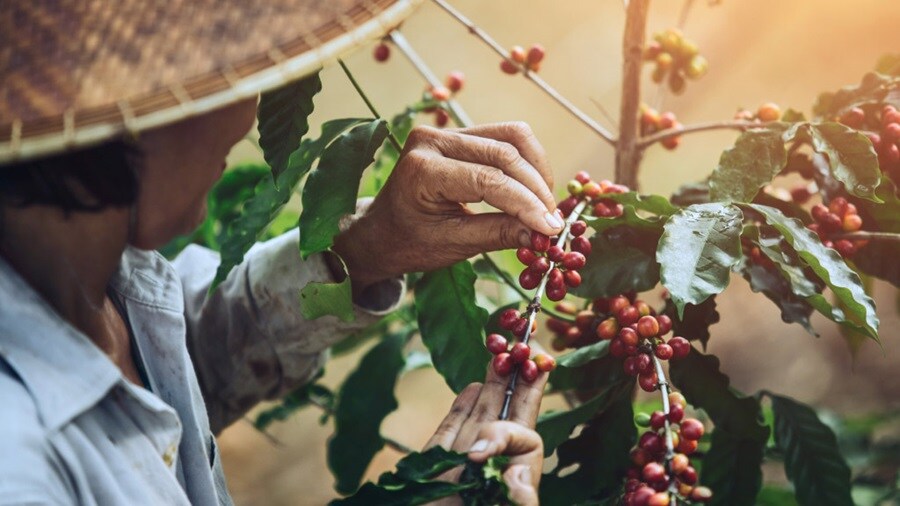
What feels like a simple routine, a warm mug in hand, the aroma filling the air, is in fact the result of a global chain of people, places, and processes working together.
Coffee has become a universal language, but its story starts far from the cafés and kitchens where it is enjoyed.
For producing countries, especially in Latin America, Africa, and Asia, coffee is more than just a beverage: it is a source of income, a cultural symbol, and a driver of local economies. From the mountains of Colombia to the plantations of Brazil, coffee supports millions of livelihoods. Yet without efficient logistics, this work would never reach the markets that depend on it.
The powerhouse of production: Latin America's and the Caribbean coffee giants
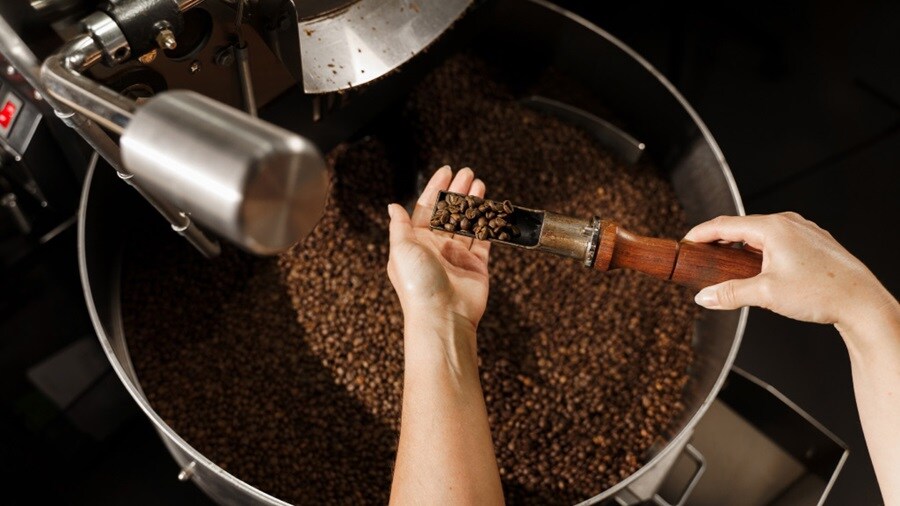
Latin America is a leader in the global coffee trade. According to a study conducted by Statista, the region, including the Caribbean, accounts for approximately 60% of the world's coffee production. Countries like Brazil, Colombia, Honduras, and Peru are not just producers, they are titans of the industry, supplying key markets such as the U.S., Europe, and Asia.
What makes Latin America such a coffee powerhouse is not only its scale but also its geography. The region’s combination of high-altitude mountains, tropical climates, volcanic soils, and well-defined wet and dry seasons creates the perfect natural environment for cultivating Arabica and Robusta beans.
From Colombia’s lush Andes to Brazil’s Cerrado, these conditions allow for diverse terroirs and flavour profiles, making Latin America the benchmark for global coffee quality.
Brazil: The world’s largest coffee exporter
In the region, Brazil remains as the leader in coffee production. According to data from the International Trade Centre In 2024, the country exported 11.3 million kilograms, a 54.7% increase compared to 2023 (7.3 million kilograms). Its diverse terroirs, such as Sul de Minas, Cerrado Mineiro, and Mogiana, each offer distinct flavour profiles, from sweet, full-bodied beans to more delicate varieties.The country’s coffee primarily flows to the United States, Germany, and Belgium, with the European Union as a whole absorbing half of all exports. From family-run farms to large-scale plantations, Brazil sets the pace for the global market.
Colombia: Heritage and specialty coffee
Colombia is synonymous with high-quality, specialty coffee. Between 2023 and 2024, exports grew by 21.6%, rising from 2.9 million to 3.5 million kilograms, according to data from the International Trade Centre. Its mountainous geography, volcanic soil, and microclimates create ideal conditions for cultivating premium beans. So unique is this landscape that UNESCO declared the Colombian Coffee Cultural Landscape a World Heritage Site.
Colombian coffee is celebrated not only for its flavour but also for the history of resilience and tradition that it carries, marked by generations of farmers who preserve ancestral techniques and contribute to the cultural identity of the country.
Rising players: Honduras and Peru
Beyond the giants, countries like Honduras and Peru are strengthening their presence. Based on a report by 6Wresearch, the Latin American coffee market as a whole was valued at USD 11.59 billion, with forecasts to reach USD 16.65 billion by 2031, growing at a 7.8% CAGR. This growth underlines the region’s vital role in shaping the future of the global coffee trade. While Latin America leads in production, it is fascinating to note that the top consumer countries are elsewhere.According to the World Population Review, Finland, for example, has the highest per capita consumption at 12 kg per person annually, highlighting the critical role logistics plays in bridging the gap between producers and global consumers.
Journey of the bean: A logistics masterclass
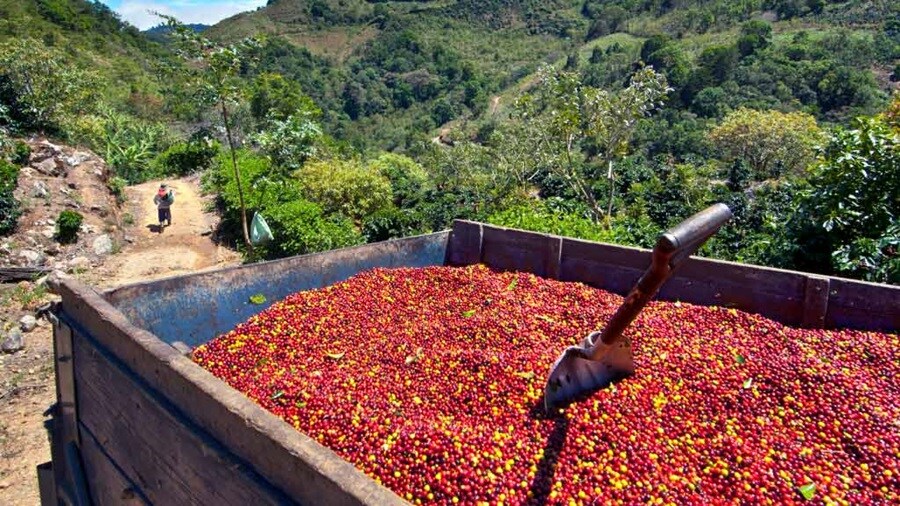
From bean to cup, coffee travels through a long and complex supply chain where logistics plays a critical role at every stage.
The coffee journey begins at the farm, where cherries are handpicked or mechanically harvested. Once collected, beans must be transported quickly to processing stations to be washed, dried, and prepared for export. First-mile logistics using trucks, small carriers, or even boats in remote areas is crucial to avoid delays and prevent loss of quality during this initial stage.
From farm to export hubs
After processing, beans are moved to cooperatives, warehouses, or consolidation centers. Here, logistics solutions for storage and containerisation come into play. Beans are sorted, packed into bags, and loaded into containers designed to protect them from moisture and pests. This stage ensures that smallholder farmers can scale up their shipments and reach global buyers.
Crossing oceans: Containerised coffee logistics
Most coffee is shipped as green beans in containers from Latin American ports such as Santos (Brazil) or Buenaventura (Colombia). Ocean logistics keeps beans safe during long voyages, with ventilated or temperature-controlled containers that preserve aroma and prevent spoilage. Efficient maritime transport reduces costs while maintaining freshness for roasters across Europe, North America and Asia.
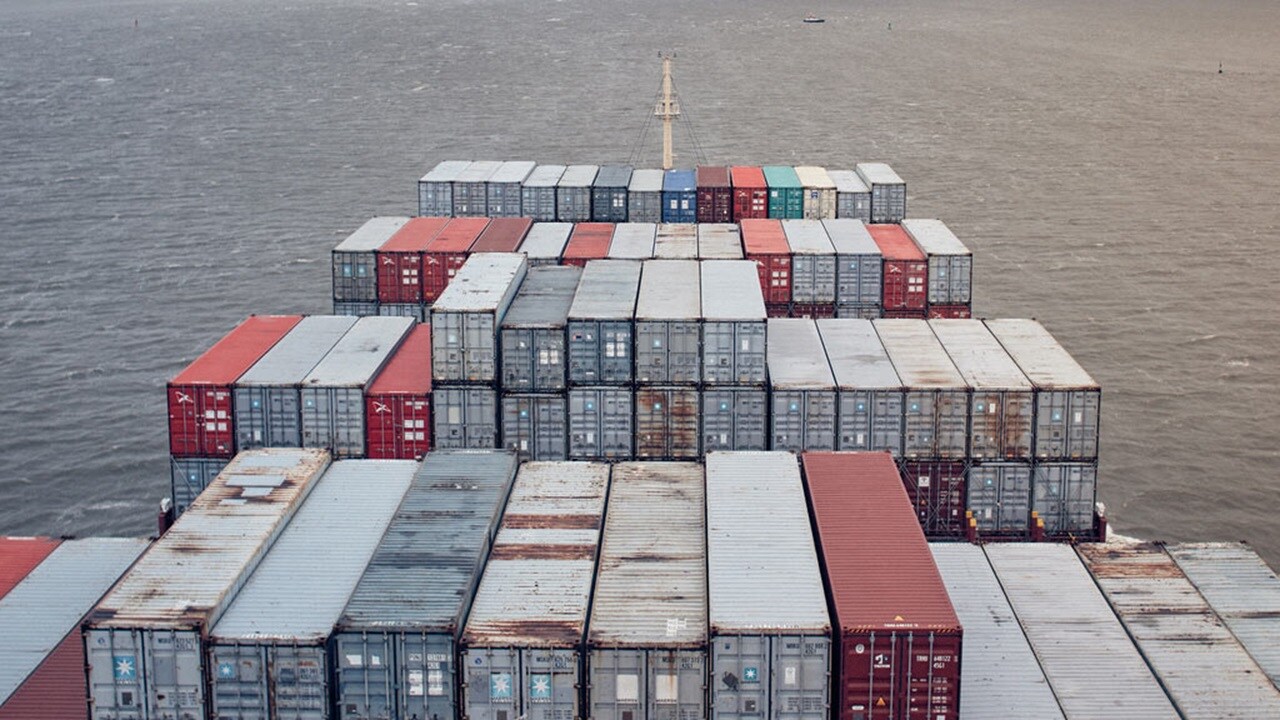
Port operations and customs: Keeping coffee moving
At both origin and destination, ports are critical nodes. Efficient port logistics and digital customs clearance reduce waiting times and eliminate bottlenecks that could compromise quality. Visibility tools allow exporters, importers, and roasters to track shipments in real time, ensuring beans do not sit idle in warehouses or docks.
Transforming beans into flavour
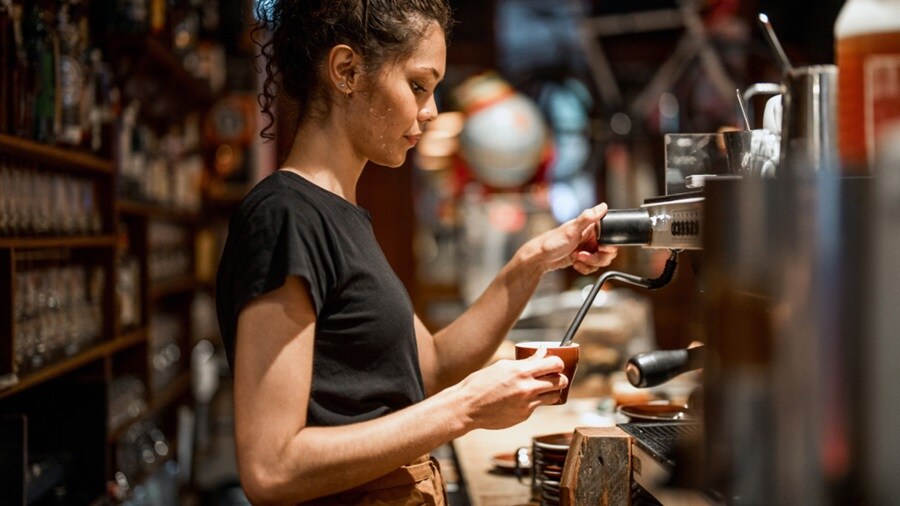
Once coffee arrives at its destination, it is delivered to roasters, who transform raw beans into the aromatic blends consumers love. Inland logistics, including trucking and rail, ensure beans move quickly from ports to roasting facilities. Here, just-in-time delivery is key: delays can disrupt production schedules and affect supply to retailers and cafés.
Roasted coffee must reach supermarkets, specialty shops, and cafés while still fresh. Last-mile logistics is optimised through distribution centres, cold-chain solutions for specialty coffee, and demand forecasting to align with consumer habits. This guarantees that whether in a supermarket in Germany or a café in Tokyo, customers enjoy the same consistent quality.
The final cup
By the time a cup of coffee is poured, it has travelled thousands of miles and passed through countless hands. Behind the scenes, end-to-end logistics plays a role in supporting traceability, and maintaining quality standards throughout the supply chain. This invisible chain connects farmers in Latin America, Africa, and Asia with consumers worldwide, making coffee not only a global commodity but also a shared cultural experience.

Brewing the future – Trends in coffee logistics
The future of coffee logistics will be defined by digitalisation and integration:
Digital tools: track-and-trace platforms and predictive analytics are enhancing visibility.
Specialty demand: premium coffee requires tighter control with temperature-sensitive solutions.
Integrated logistics: end-to-end providers streamline operations from farm to consumer, ensuring resilience against disruptions.
The invisible thread: Logistics as the enabler
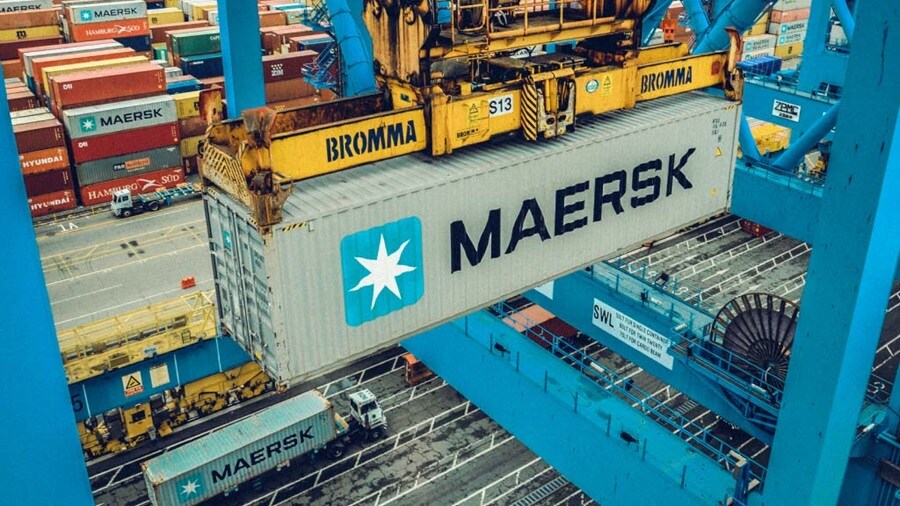
Coffee is a cultural icon, a source of livelihoods, and a global commodity, but without logistics, it would never leave the farm. End-to-end logistics connects every link in the chain: from producers in Brazil and Colombia to roasters in Europe and cafés in Asia.
As an integrator of global logistics, Maersk plays a crucial role in this journey. By integrating ocean, inland, warehousing, and digital solutions, we ensure that coffee maintains its quality, traceability, and availability worldwide; helping coffee producers and traders navigate complexity with reliability and resilience.
Our role is not just to move coffee, but to safeguard the continuity of a tradition that fuels conversations, cultures, and communities around the globe.
Sign up to The Logistics Pulse newsletter
You did it, welcome onboard!
We're sorry, but there was a problem sending your contact request.
Please review the form fields and ensure all required information is provided correctly. If the issue persists, please contact our support team for further assistance.
Sign up to The Logistics Pulse newsletter
Receive our insights directly in your mailbox by signing up through this form and enter a world of truly integrated logistics. Get inspired by our selection of articles that help you navigate supply chains, understand industry trends, and shape your logistics strategy. You can unsubscribe anytime.
I agree to receive logistics related news and marketing updates by email, phone, messaging services (e.g. WhatsApp) and other digital platforms, including but not limited to social media (e.g., LinkedIn) from A. P. Moller-Maersk and its affiliated companies (see latest company overview). I understand that I can opt out of such Maersk communications at any time by clicking the unsubscribe link. To see how we use your personal data, please read our Privacy Notification.
By completing this form, you confirm that you agree to the use of your personal data by Maersk as described in our Privacy Notification.
